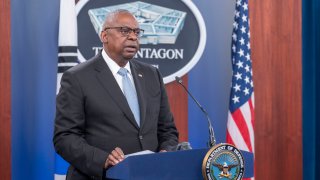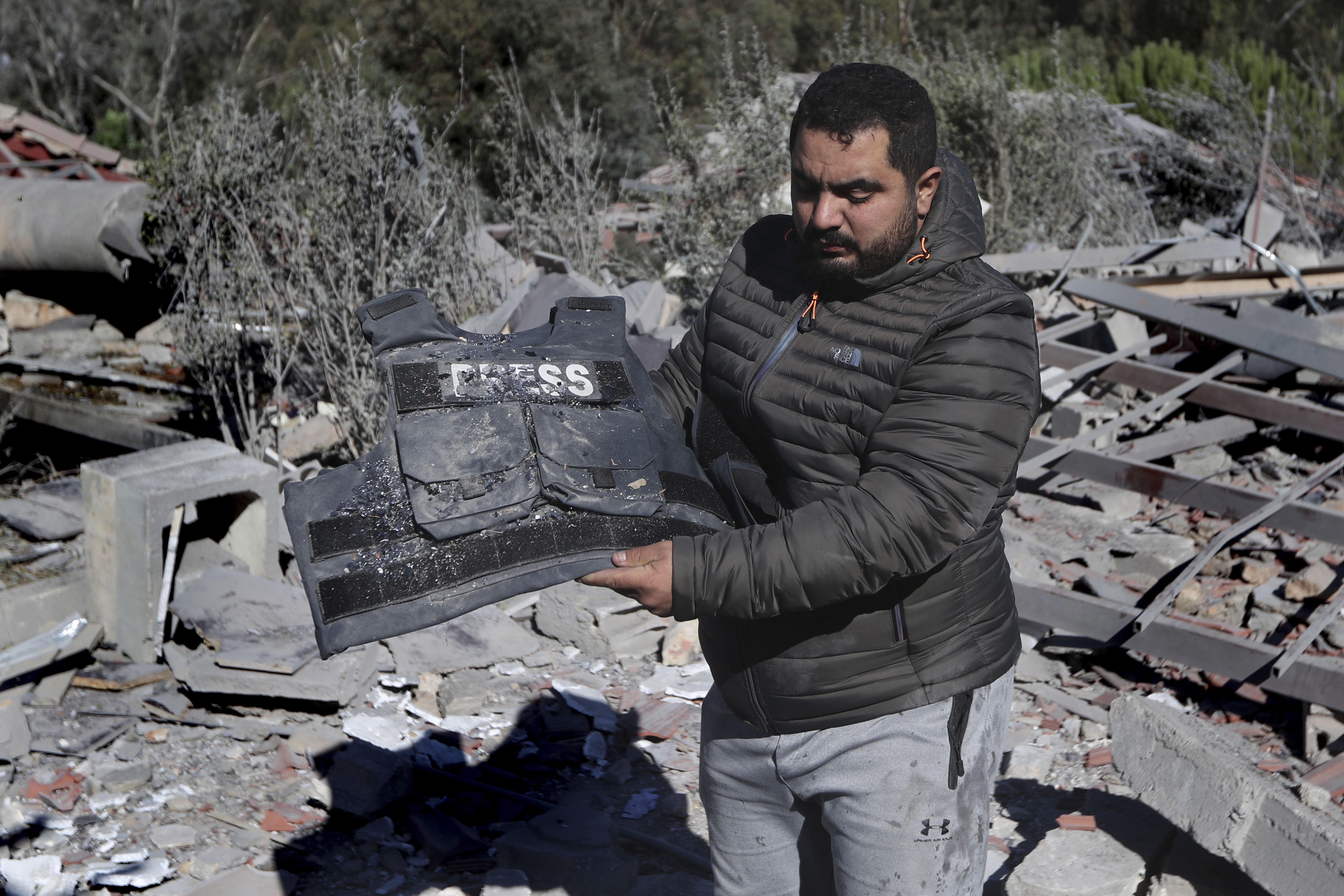
Defense Secretary Lloyd Austin is sending bomber aircraft, fighter jets and more Navy warships to the Middle East to bolster the U.S. presence in the region, the Pentagon announced Friday, as an aircraft carrier and its ships are preparing to leave.
Austin ordered several B-52 Stratofortress bomber aircraft,a squadron of fighter jets, tanker aircraft and Navy destroyers to deploy to the Middle East, said Maj. Gen. Pat Ryder, Pentagon press secretary, in a statement. He said they will begin arriving in the region in coming months, as the USS Abraham Lincoln begins to head home.
The military moves come as Israel’s wars with Hamas in Gaza and Hezbollah in Lebanon rage, including a retaliatory strike on Iran a week ago that likely damaged a base that builds ballistic missiles and launches rockets as part of Tehran’s space program.
The U.S. is pressing for cease-fires, while repeatedly saying it will defend Israel and continue to protect the American and allied presence in the region, including from Yemen-based Houthi attacks against ships in the Red Sea.
Get Tri-state area news delivered to your inbox. Sign up for NBC New York's News Headlines newsletter.
Austin's latest order, said Ryder, shows the “U.S. capability to deploy world-wide on short notice to meet evolving national security threats.” He said Austin “continues to make clear that should Iran, its partners, or its proxies use this moment to target American personnel or interests in the region, the United States will take every measure necessary to defend our people.”
The long-range nuclear-capable B-52 bomber has been repeatedly deployed to the Middle East in pointed warnings to Iran and it is the second time this month that strategic U.S. bombers will be used to bolster U.S. defenses in the region.
In October, B-2 stealth bombers were used to strike underground Houthi targets in Yemen.
Ryder did not provide the specific number of aircraft and ships that will move into the region. The shifts are likely to result in an overall decrease in the total number of U.S. troops in the Middle East, largely because an aircraft carrier contains as many as 5,000 sailors.
But the addition of bomber aircraft beefs up U.S. combat strength. There have been as many as 43,000 U.S. forces in the region recently.
According to U.S. officials, the USS Abraham Lincoln aircraft carrier and the three Navy destroyers in its strike group are scheduled to leave the Middle East by mid-month and return to their home port in San Diego.
When it departs, there will be no aircraft carrier in the Middle East for a period of time, officials said. U.S. They declined to say how long that gap would last.
Military commanders have long argued that the presence of an aircraft carrier strike group, with its array of fighters jets, surveillance aircraft and heavily armed warships, is a significant deterrent, including against Iran.
To make up for that gap, Austin is ordering the deployment of other Navy destroyers to the region. Those destroyers, which are capable of shooting down ballistic missiles, would come either from the Indo-Pacific region or Europe, the official said.
Eventually, it is expected that the USS Harry S. Truman aircraft carrier and its three warships will move to the Mediterranean Sea, but they won't get there before the Lincoln departs. The Truman strike group has been in the North Sea, participating in a NATO military exercise.
The Lincoln and two of its destroyers are now in the Gulf of Oman, and its third destroyer is with two other warships in the Red Sea.
There are also two destroyers and the Marine amphibious ready group — which includes three ships — in the Mediterranean Sea.



